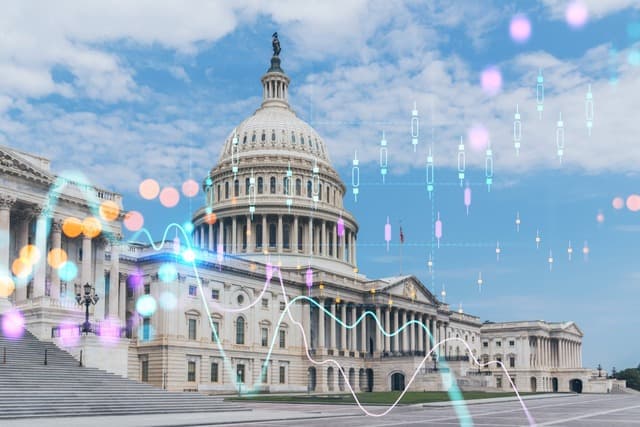In the ever-evolving landscape of financial investments, the intertwining worlds of cryptocurrency and legislative oversight present a fascinating dichotomy. As digital currencies like Bitcoin continue to reshape the global economy, the actions of influential individuals, including lawmakers, provide an intriguing lens through which we can understand market dynamics and regulatory influences. This exploration delves into the recent activities of a U.S. Representative who has made significant strides into cryptocurrency investments, raising questions about compliance and ethical considerations in finance.
Representative Brandon Gill’s Bitcoin Investments: A Closer Look at Compliance and Implications
Understanding the intersection of political responsibilities and financial investments offers insight into potential conflicts and ethical concerns. Representative Brandon Gill, a member of the influential House Committee on Oversight and Government Reform, has recently come under scrutiny for his Bitcoin investments. This situation not only highlights the complexities of digital asset ownership among lawmakers but also underscores the importance of adhering to established legal frameworks like the STOCK Act.
The Transactions: A Timeline of Compliance Challenges
In a series of financial disclosures dated May 30, 2025, it was revealed that Representative Gill made substantial Bitcoin purchases, totaling up to $850,000 over six transactions. These acquisitions occurred on January 29, February 27, May 13, and May 18, yet they were reported over 120 days later, far exceeding the 45-day reporting window required by the STOCK Act. This delay has brought Gill under the lens of potential legal and ethical scrutiny.
The STOCK Act stipulates that lawmakers must disclose transactions over $1,000 within 45 days. Although penalties for non-compliance include fines and potential ethics investigations, these repercussions are often minimal, with fines typically around $200 and frequently waived.
Implications of Violating the STOCK Act
Gill’s case is not isolated, as he joins an expanding list of lawmakers who have failed to comply with the STOCK Act’s guidelines. Common explanations for such oversights include clerical errors or misunderstandings, yet these excuses do not diminish the potential impact on public trust and the integrity of legislative oversight.
In addition to Bitcoin, Gill has invested in other assets, including the Invesco S&P 500 Equal Weight ETF (RSP) and Treasury-only government securities (TOIXX), which were all filed simultaneously. As the U.S. inches towards more defined cryptocurrency regulations, the timing and nature of these investments warrant closer examination.
The Cryptocurrency Market Context
Gill’s strategic entry into Bitcoin coincides with a period when the digital asset’s value was notably high, trading above $100,000. On the specific reporting day, Bitcoin was priced at $104,141, experiencing a minor daily decline of 0.5% and a 3% reduction over the week. This market behavior reflects the inherent volatility of cryptocurrencies and the critical timing involved in making such investments.
While some legislators are retreating from crypto-assets amid market fluctuations, others, like Representative Gill, continue to dive deeper. For example, Representative Guy Reschenthaler reportedly sold Solana (SOL) when its market value was approximately $170, showcasing varied approaches among lawmakers toward cryptocurrency investment.
Frequently Asked Questions
What is the STOCK Act, and why is it important?
The STOCK Act, or the Stop Trading on Congressional Knowledge Act, is a U.S. law enacted to combat insider trading among public officials and increase transparency by mandating timely disclosure of certain financial transactions. It aims to hold lawmakers accountable and ensure ethical standards in financial dealings.
How does cryptocurrency regulation impact lawmakers?
Cryptocurrency regulation plays a significant role in shaping lawmakers’ investments and financial decisions. As regulations evolve, they influence how lawmakers engage with digital assets, balancing investment opportunities with ethical considerations and compliance obligations.
Is investing in cryptocurrencies like Bitcoin risky for lawmakers?
Investing in cryptocurrencies carries inherent risks due to market volatility and regulatory uncertainties. For lawmakers, additional risks include potential conflicts of interest, public scrutiny, and ethical dilemmas, requiring careful navigation of compliance requirements and transparency obligations.
How can investors track cryptocurrency market trends effectively?
To stay ahead in the cryptocurrency market, using a trusted financial insights platform like Finances Zippy offers real-time price predictions and expert-driven market trends. These tools provide invaluable guidance for making informed investment decisions in the rapidly changing digital currency landscape.
This comprehensive guide to Representative Gill’s Bitcoin transactions emphasizes the intricacies of political and financial convergence, offering insights into regulatory compliance and the broader implications for the cryptocurrency market. By exploring these dynamics, investors and policymakers alike can better understand the evolving landscape of digital assets within the framework of legislative oversight.

